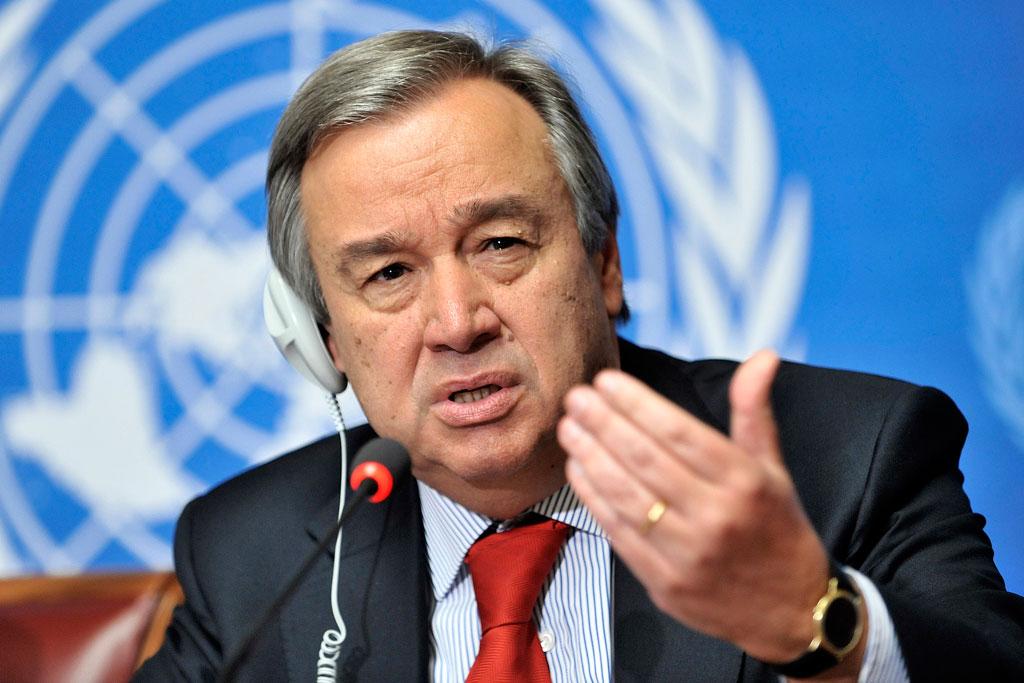|
Getting your Trinity Audio player ready...
|
The United Nations should establish a dedicated international body to oversee the use of artificial intelligence (AI) as the technology increasingly demonstrates its potential risks and benefits, according to UN Secretary-General António Guterres.
Speaking at the first-ever meeting of the UN Security Council dedicated to AI governance, Guterres emphasized the UN’s unique role in coordinating a global response to AI and urged the organization to set universally agreed-upon rules for monitoring and regulating the technology.
Drawing parallels with previous UN initiatives in areas such as nuclear energy, aviation safety, and climate change, Guterres highlighted the urgent need to address the risks associated with AI. While acknowledging the positive impact AI has had on UN operations, such as monitoring ceasefires and identifying patterns of violence, he also warned of the malicious use of AI by hostile actors, causing widespread human suffering. Guterres emphasized the potential for AI to be used for terrorist, criminal, or state purposes, which could lead to catastrophic consequences and deep psychological damage.
Guterres called for action, proposing the development of a legally binding agreement by 2026 to prohibit the use of AI in fully automated weapons of war. Additionally, he pledged to establish an advisory council tasked with proposing broader regulations for AI by the end of the year. Guterres also hinted at an upcoming policy brief that will provide recommendations for governments on how to approach AI responsibly.
The meeting, led by UK Foreign Secretary James Cleverly, emphasized the need for international AI governance rooted in principles such as freedom, democracy, respect for human rights and the rule of law, as well as security, including physical security, property rights, and privacy. Cleverly highlighted the potential of AI to enhance or disrupt global strategic stability and raised moral questions surrounding accountability for lethal decisions on the battlefield.
The Chinese government expressed its viewpoint that UN rules should reflect the perspectives of developing countries to prevent AI from becoming a “runaway wild horse.” Chinese Ambassador Zhang Jun argued for flexible international laws and norms that allow countries to establish their national-level regulations. Zhang also criticized certain “developed countries” for pursuing technological hegemony and obstructing the technological development of other nations, without naming them.
Representatives from the tech industry also had a voice at the meeting. Jack Clark, co-founder of AI company Anthropic, stressed the importance of not allowing private companies to monopolize AI development. He called for global collaboration among governments to ensure the safe and inclusive advancement of AI, making it a shared endeavor across society rather than controlled by a few firms competing in the marketplace.
The discussions held during the meeting highlight the increasing recognition of the need for global cooperation and regulations to harness the potential of AI while addressing its associated challenges. The establishment of an international body for AI governance could pave the way for coordinated efforts to shape the future development and use of this transformative technology.
The meeting also featured discussions on the role of AI in geopolitical tensions. Reports of the US government potentially restricting the export of powerful AI chips to China set the backdrop for Chinese Ambassador Zhang Jun’s remarks.
Zhang stressed that international laws and norms surrounding AI should allow countries to establish their own regulations and warned against “developed countries” creating technological barriers and seeking technological dominance. He emphasized China’s opposition to such behaviors and its commitment to preventing AI from becoming a tool of hegemony.
In response, a representative from the United States emphasized the importance of not using AI to censor, constrain, repress, or disempower individuals, possibly alluding to China’s use of technology for surveillance purposes, particularly in relation to ethnic minorities. The discussions highlighted the divergent perspectives on AI governance and the need for a balanced approach that respects human rights and avoids undue concentration of power.
The inclusion of voices from the tech industry added further depth to the discussions. Jack Clark, co-founder of AI company Anthropic, emphasized the importance of government involvement in AI development, calling for collaboration among governments to ensure safe and inclusive progress. Clark highlighted the risks of leaving AI solely in the hands of private sector actors and urged a shared endeavor across society.
The meeting of the UN Security Council marked a significant milestone in recognizing the global implications of AI and the urgent need for international cooperation in its governance. As AI continues to advance and impact various sectors, addressing the ethical, legal, and security challenges becomes paramount.
The discussions held within the UN framework will inform ongoing efforts to establish a regulatory framework that fosters responsible AI development and usage while safeguarding human rights and promoting international stability.
The outcomes of this meeting, including the establishment of an advisory council and the development of proposals for AI regulation, will shape the future landscape of AI governance. It remains to be seen how nations will collaborate to strike a balance between technological advancement, national interests, and global cooperation in harnessing the potential of AI for the benefit of humanity.
